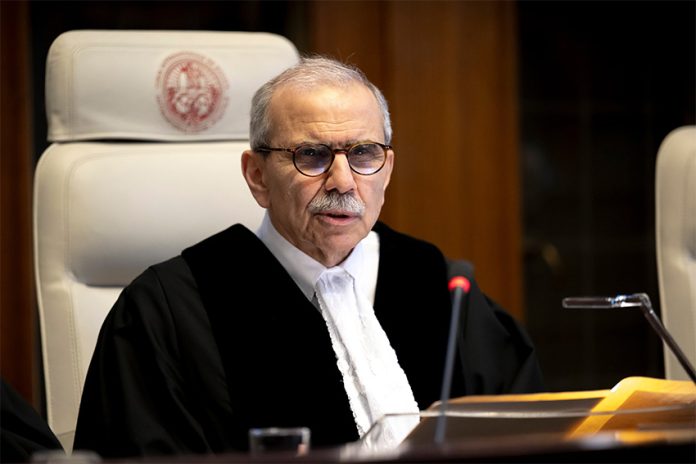The International Court of Justice (ICJ) has rejected Mexico’s request that the ICJ order Ecuador to protect the Mexican Embassy in Quito, amid an ongoing dispute between the two Latin American countries.
Mexican diplomatic staff abandoned the embassy last month after Ecuadorian police broke into the diplomatic mission on April 5 to arrest former Ecuadorian vice president Jorge Glas, who had been taking refuge there since December.
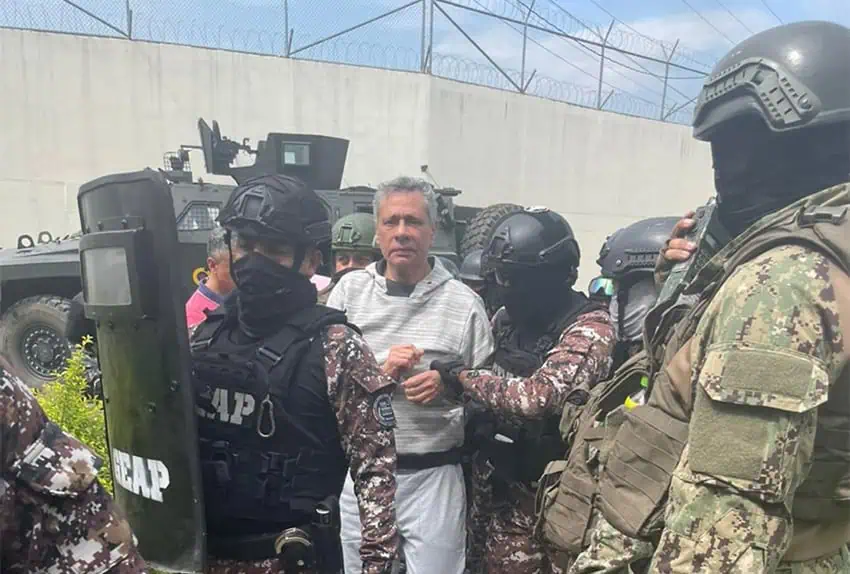
After the raid, Mexico promptly broke diplomatic relations with Ecuador, describing the attack on its embassy in Quito as a “flagrant and serious violation of the Vienna Convention on Diplomatic Relations.”
Many other countries also condemned Ecuador’s storming of the embassy in Quito.
On April 11, the Mexican government filed a lawsuit with the ICJ against Ecuador in which it asked the court to award compensation and suspend Ecuador from the United Nations until it issues “a public apology recognizing its violations to the fundamental principles and norms of international law.”
It also asked the ICJ — one of the six principal organs of the UN — to take “appropriate and immediate steps to provide full protection and security of [its] diplomatic premises” in Quito, including the residences of diplomats, in order to prevent any further raids.
In a ruling on Thursday, ICJ presiding judge Nawaf Salam said that pledges already made by Ecuador to protect the Mexican embassy in Quito, both in a letter to the ICJ and in public hearings last month, “encompass the concerns expressed by Mexico” and therefore the ICJ “considers that there is at present no urgency” to issue a directive to Ecuador.
Andrés Terán Parral, Ecuador’s ambassador to the Netherlands, expressed satisfaction with the ruling.
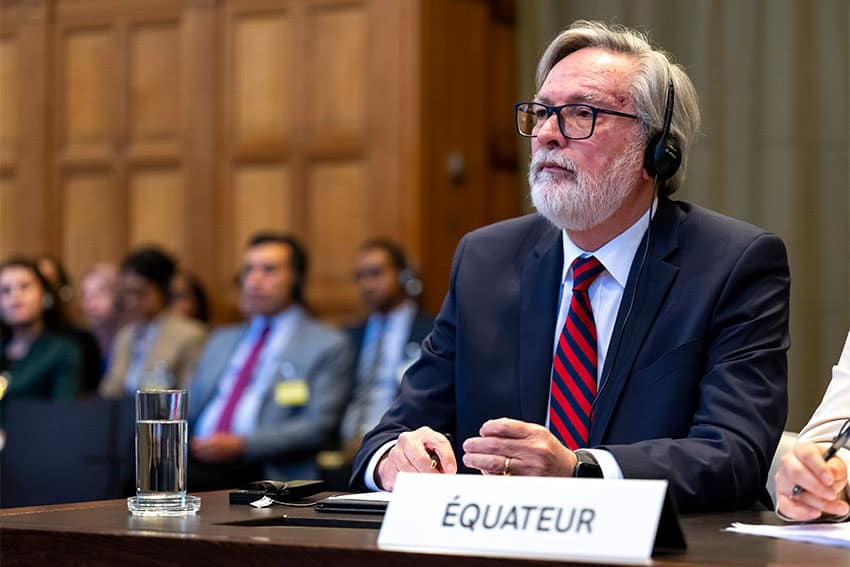
“The court highlighted, among other things, that Ecuador has given repeated assurances that it would provide full protection and security to the premises, property and archives of the Mexican Embassy in Quito. Ecuador stands by its assurances,” he told reporters at the ICJ in The Hague.
Terán has defended Ecuador’s raid on the Mexican Embassy during hearings at the ICJ, telling judges that it acted to arrest “a common criminal.”
Ecuador’s Foreign Ministry said in a statement on Thursday that the court’s rejection of Mexico’s request “confirms the unnecessary character of the request.”
“The court recognizes that the good faith of Ecuador should be presumed and makes clear that the present circumstances do not present any risk to the rights of Mexico,” the ministry added.
In a press release announcing that it had rejected Mexico’s request, the ICJ also noted that in a legal document it issued on Thursday it “emphasizes ‘the fundamental importance of the principles enshrined in the Vienna Convention on Diplomatic Relations.'”
“In this respect, [the court] states, as it has previously noted, that ‘there is no more fundamental prerequisite for the conduct of relations between States than the inviolability of diplomatic envoys and embassies,'” the ICJ said.
The Mexican government interpreted that statement as a “victory for Mexico.”
In a post to the X social media platform, the spokesperson for President Andrés Manuel López Obrador said that the ICJ had “declared that Ecuador is obliged to respect Mexico’s embassy.”
“It didn’t issue provisional measures because Ecuador legally committed to do it. This is a victory for Mexico,” Jesús Ramírez said in a post that was “reposted” by Mexico’s Ministry of Foreign Affairs (SRE).
Alejandro Celorio Alcántara, legal advisor for the SRE, said that the ICJ’s position on the inviolability of diplomatic envoys and embassies is “of the utmost importance for Mexico, for Ecuador and the whole world.”
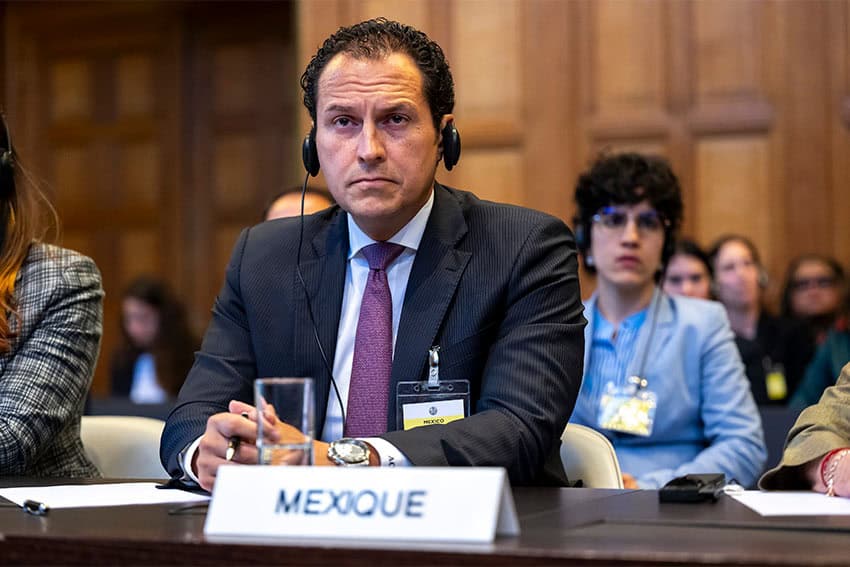
Mexico’s broader lawsuit against Ecuador is likely to take months if not years to be resolved.
Ecuador last month filed its own complaint against Mexico with the ICJ over what it claimed was an illegal move to grant political asylum to Glas, who has been convicted twice of corruption and faces fresh charges.
Reuters reported that Glas — who served under presidents Lenín Moreno and Rafael Correa — faces charges of misusing funds collected to aid reconstruction of the coastal province of Manabí after a devastating 2016 earthquake.
Mexico granted the former vice president asylum just before he was arrested at the embassy by Ecuadorian police.
AMLO: Four conditions must be met before Mexico reestablishes relations with Ecuador
At his morning press conference on Thursday, President López Obrador was asked about Ecuadorian President Daniel Noboa’s statement that he is willing to engage in dialogue with Mexico.
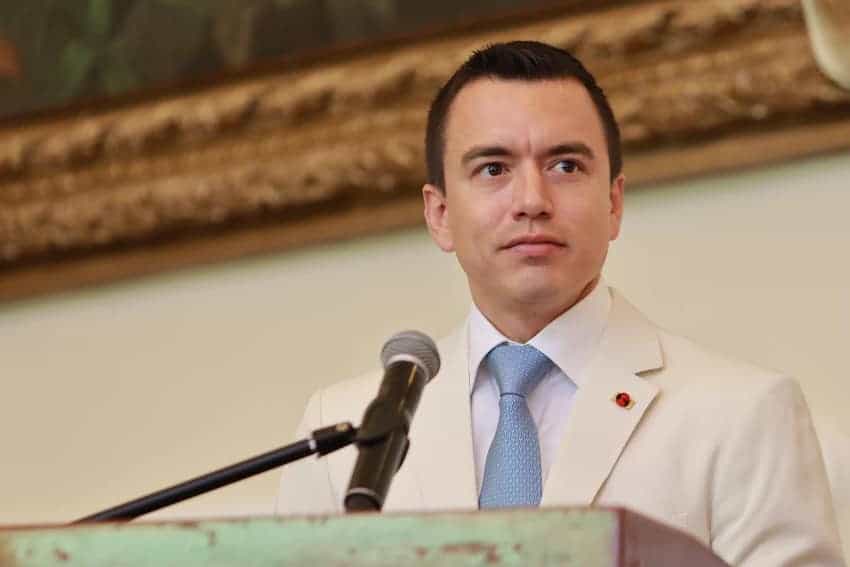
“We’re not seeking dialogue with the person who didn’t respect the sovereignty of our country,” López Obrador responded.
He noted that the dispute between the two countries about the raid on the Mexican embassy is before the ICJ and declared that that is where it will be resolved.
After a reporter said that there was no indication from Ecuador that it was prepared to release Glas despite some international pressure to do so, López Obrador declared that Mexico wouldn’t consider reestablishing relations with the South American nation “if they don’t offer a public apology, in the first case.”
He also announced three other conditions that would need to be met for Mexico to reestablish relations with Ecuador:
- That the Ecuadorian government promise to respect the right to asylum
- That it commit to never again breaking into a foreign country’s embassy
- That — as López Obrador put it — “any government that acts like Ecuador did should be expelled from the United Nations”
“It’s as clear as that,” López Obrador added.
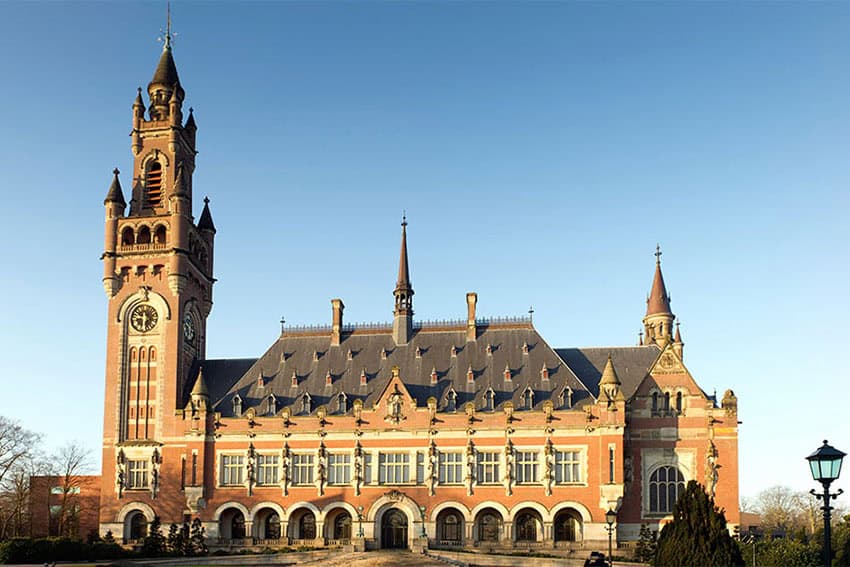
The president acknowledged the ICJ’s ruling on Thursday but noted that Mexico’s broader case has not been resolved. He said he didn’t have a lot of confidence that the Ecuadorian government would uphold its promise to protect Mexico’s diplomatic premises in Ecuador but claimed that the Ecuadorian people would “help to look after Mexico’s assets” in the country.
“We don’t trust the government, but we do trust the Ecuadorian [citizens] because we’re brotherly peoples,” López Obrador said.
“This is not a matter of differences with the people of Ecuador, it’s an issue with an authoritarian government that ignores international law, is disrespectful and which violated our sovereignty and attacked our diplomatic representatives,” he said.
With reports from Reuters, AP and El Financiero
